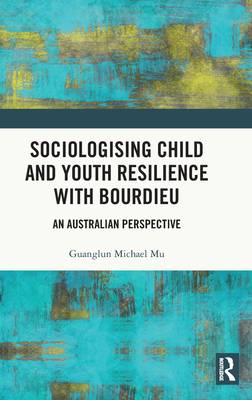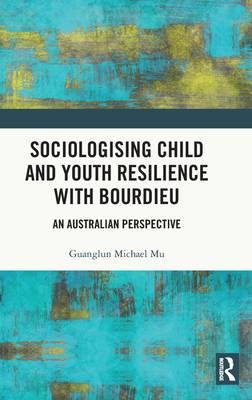
- Retrait gratuit dans votre magasin Club
- 7.000.000 titres dans notre catalogue
- Payer en toute sécurité
- Toujours un magasin près de chez vous
- Retrait gratuit dans votre magasin Club
- 7.000.0000 titres dans notre catalogue
- Payer en toute sécurité
- Toujours un magasin près de chez vous
Sociologising Child and Youth Resilience with Bourdieu
An Australian Perspective
Guanglun Michael MuDescription
In this book, Mu crafts a sociology of resilience through his multi-year research with Australian students. The content is not merely concerned with individual achievements in precarious conditions but also ponders over transformative, reflexive, and power-rejective everyday practices that make social change possible, probable, and even inevitable.
Since Emmy Werner and her colleagues discovered the "self-righting" and "invincible" children on the Hawaiian island of Kauai who fared well despite exposure to significant household risks, positive psychology has markedly advanced the knowledge about child and youth resilience to adversities. Yet, many children and adolescents continue to slide through system cracks. This fact does not invalidate psychology of resilience; rather, it urges new frameworks to break the reproductive circle of inequality. Reframing the traditional psychological notion of resilience through recourse to Bourdieu's relational and reflexive sociology, the book moves beyond individual adaptation to adverse conditions and takes a deep dive into sociological resilience to structural problems. It offers school professionals and educational researchers an epistemological tool to reapproach resilience and reappropriate Bourdieu for social change.
Offering scholarship that will interest researchers in the areas of child and youth resilience, sociology of resilience, and sociology of education, the volume is written to engage with the intellectual work of both established scholars and emerging researchers within Australia and beyond. The empirical analyses also provide useful insights for educational professionals in schools and resilience researchers in universities.
Spécifications
Parties prenantes
- Auteur(s) :
- Editeur:
Contenu
- Nombre de pages :
- 214
- Langue:
- Anglais
- Collection :
Caractéristiques
- EAN:
- 9781032111889
- Date de parution :
- 08-08-22
- Format:
- Livre relié
- Format numérique:
- Genaaid
- Dimensions :
- 156 mm x 234 mm
- Poids :
- 489 g

Les avis
Nous publions uniquement les avis qui respectent les conditions requises. Consultez nos conditions pour les avis.






